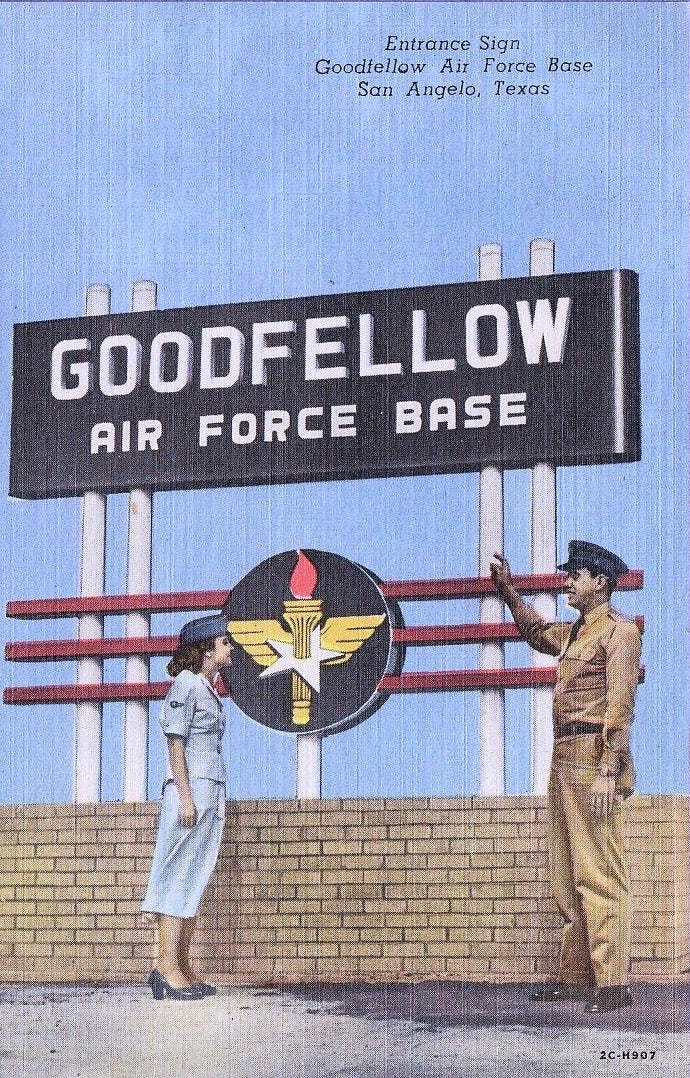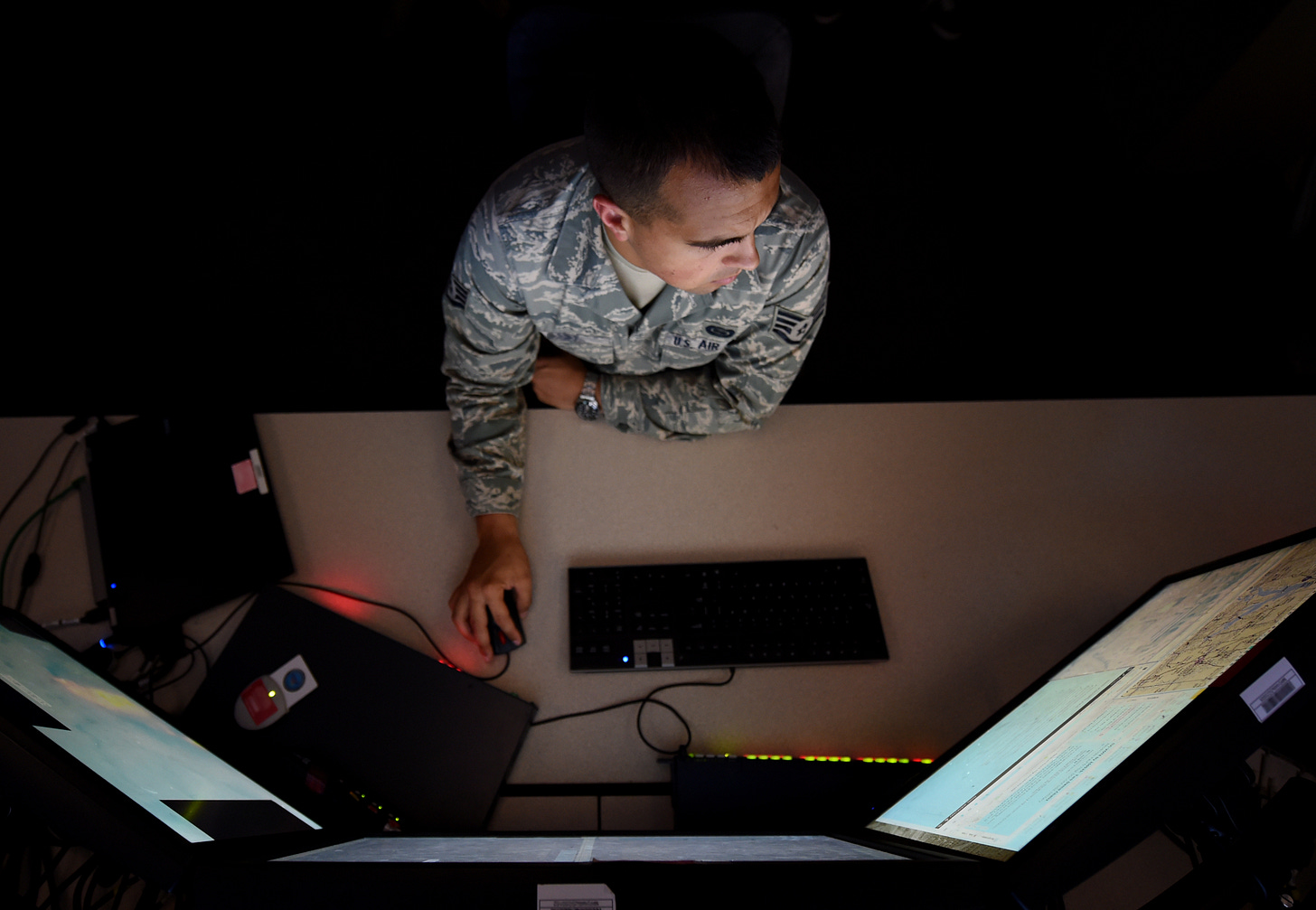[Archives] The Life of a First Sergeant
One of the most challenging jobs in the military
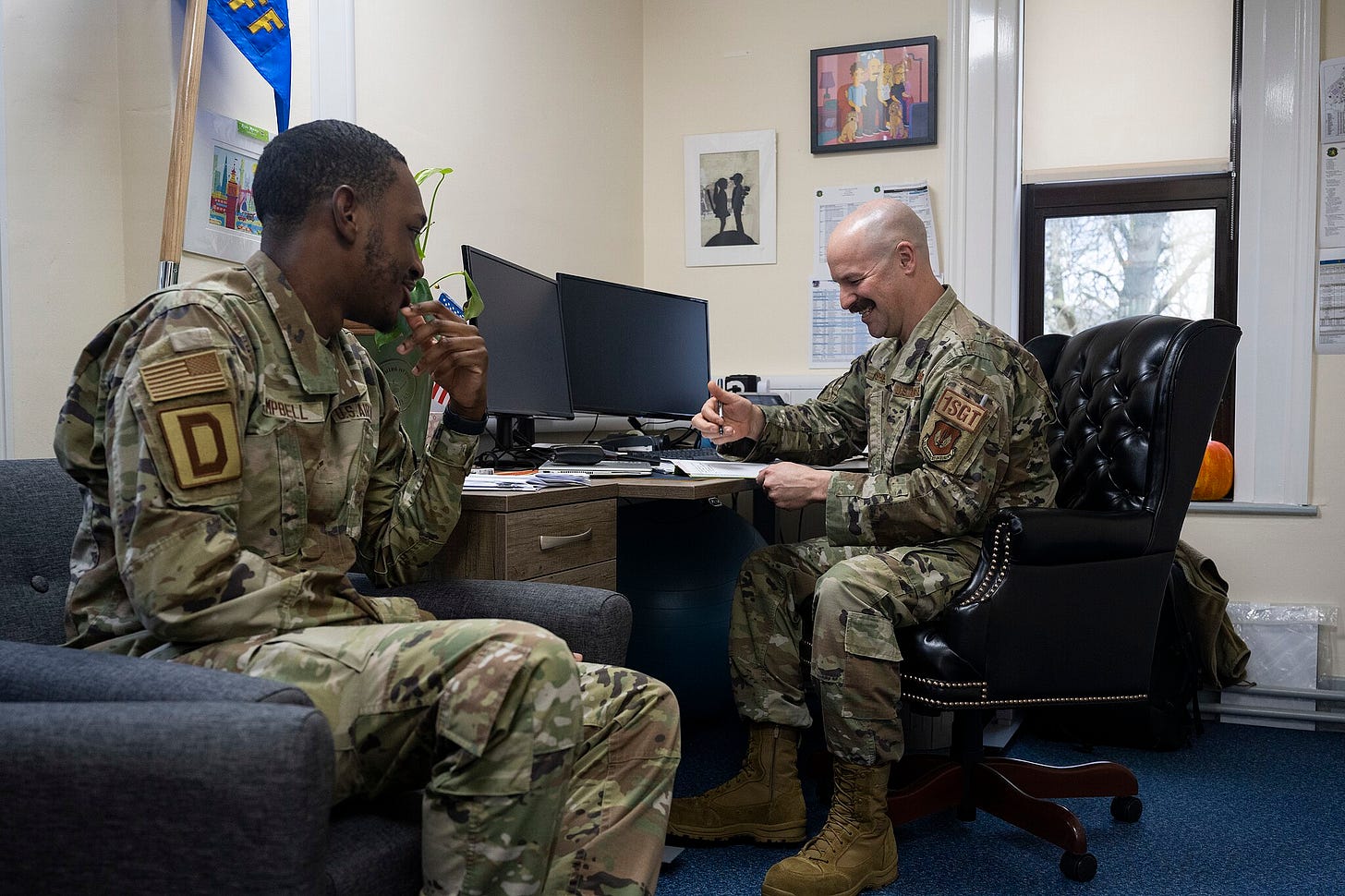
It’s been a few weeks since Will permitted me to write in his space, and since he’s introduced me as his First Sergeant, I thought I’d tell you all a little about me: what a First Sergeant does and what I did as a First Sergeant.
(Note: Every service has “First Sergeants,” but they have different titles)
What does a First Sergeant do?
In straightforward terms, a First Sergeant has a lot of work to do and an extensive lane in which to do it.
“Provide the Commander with a Mission Ready Force”
What does that mean? Well, anything and everything, really. Anything that can affect an Airman’s ability to do his or her job, it’s our job to help them through that in one way or another. We provide advice, mentorship, and assisting resources for mental health, and a gentle nudge to the Area Defense Counsel (they’re your friend if you’re in trouble!). We also help review past performance to guide the commander in promoting the most deserving troops for various positions, much like HR in the civilian world, but with a lot more complexity.
My path:
Okay, how did I get here? Well, it all started at a little base called Goodfellow in the thriving metropolis of San Angelo, Texas. Our squadron was small in terms of the permanent party population (those assigned to work there) and huge in terms of the trainee population. Trainees can get themselves into all sorts of trouble. Sometimes, that trouble would land them in jail. I was appointed as the Non-Commissioned Officer (NCO), who took our trainees to jail or picked them up from jail. I was often in the First Sergeant’s office, and as I learned the job, I thought I would like this gig. I even got to take my Group Commander (my boss's boss) to jail!
For everyone else…it was just a visit.
Fast forward a few years, and I attended the First Sergeant Symposium. During that event, I gained insight into the daily responsibilities of a First Sergeant. Unless the unit is small, most First Sergeants are Senior Non-Commissioned Officers (SNCOs), meaning they have usually been in the service for about a decade. A few months later, I was allowed to work part-time for a small team within the 480th ISR Group. I performed well enough that I was asked to fill in full-time for the entire 451st Intelligence Squadron. I started in early May 2021.
Day 1:
I thought I’d set a good example for my Airmen in my new role, and figured what better way to start the day than with physical training? On Monday morning, 3 May 2021, I ran around the Big Fort Eisenhower track, also known as Barton Field. 3/4’s of the way around the track, I got a phone call. “Shirt, Airman Snuffy is in jail. His wife is in the hospital. It was a domestic assault.” I sped back to the squadron, took a quick shower, and set off to the boss's office for the first time to say, “Hey, Sir, got a few minutes?”
That set the tone for almost my entire time as a shirt.
Month 1:
One month later, Airman Snuffy is released from jail, taking on casual work because his security clearance has been suspended. (Suspended and revoked are different!) Our investigations were ongoing, culminating in his discharge from the Air Force. But I had way more on my plate. By that point, we had two ongoing sexual assault cases, and I was helping the Air Force Office of Special Investigations (Like the FBI, but Air Force) with their investigations.
I *ALSO* had to go to another Airman’s house. He was deployed. His wife was home with family. His house had been robbed, but with a twist. Y’all remember Home Alone? The Wet Bandits also visited there; they cut the washer and dryer off the wall and left the water running for a while — it was gross. They also stole everything of value out of this poor Airman’s house, including three cars out of his garage. It was wild and thorough and awful. They had time because he was gone. I had to board up the house after the police finished their work (I’m quite handy and have the necessary tools) and worked to get the Airman home early from his deployment. It was wild! We eventually recovered most of it or received payment through insurance.
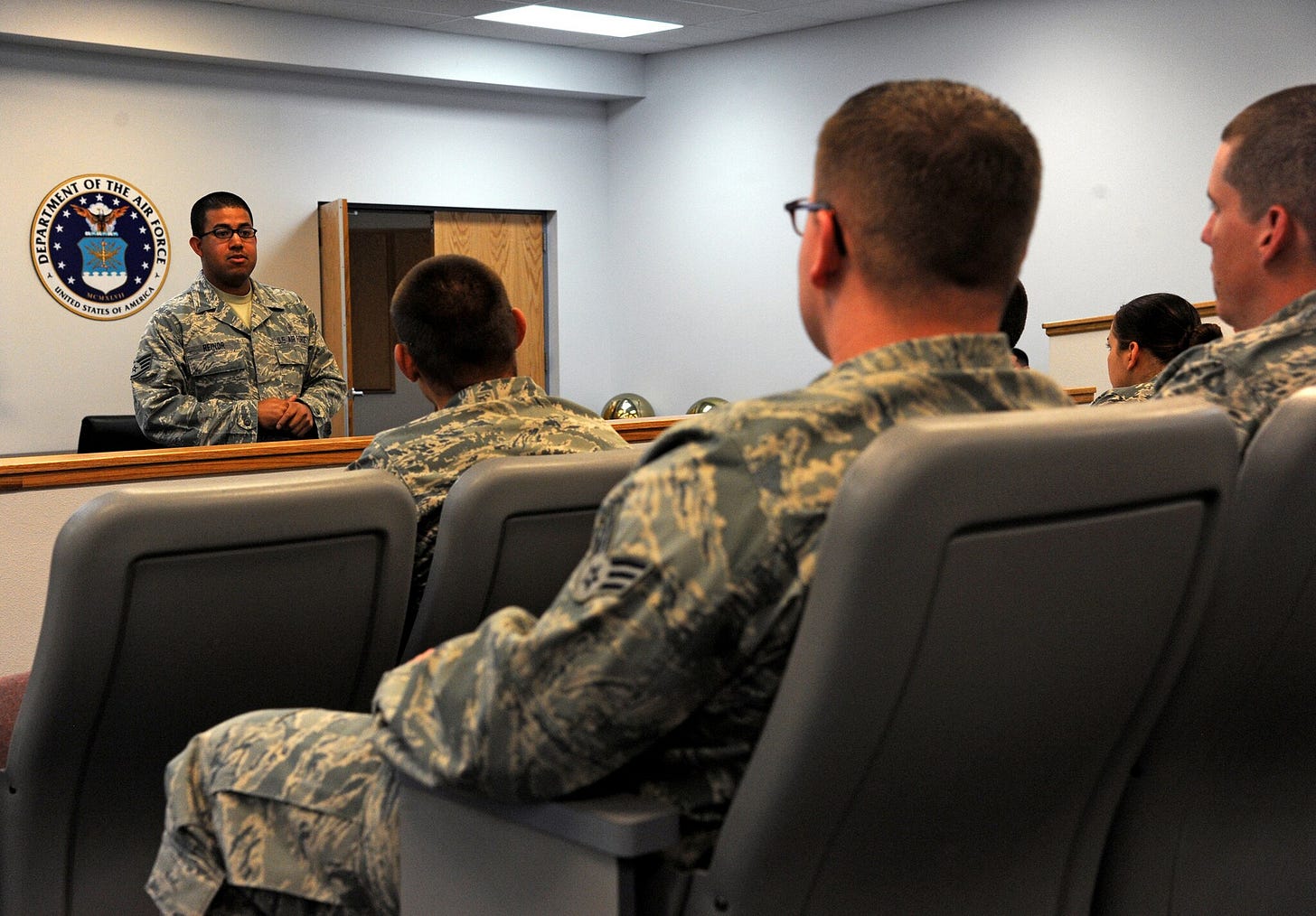
It was not all bad news and challenging times. I also presided over a BTZ (below-the-zone) promotion board for some high-speed Airmen. I’ll never forget the winner. All the interviews with the board were conducted virtually (due to COVID, remember that?), and this Airman was on leave on the other side of the country. She had still brought her uniform and looked quite sharp in the video. Her answers were impressive and responsive to the grilling she had taken from the panel of SNCOss; at the end, she recited the Airman’s Creed. My favorite part that knocked us all out of our chairs was the end when she shouted, “AND I WILL NOT FAIL!” She could not have known then, but that left such an impression on the board that sealed the deal. She was selected for early Promotion.
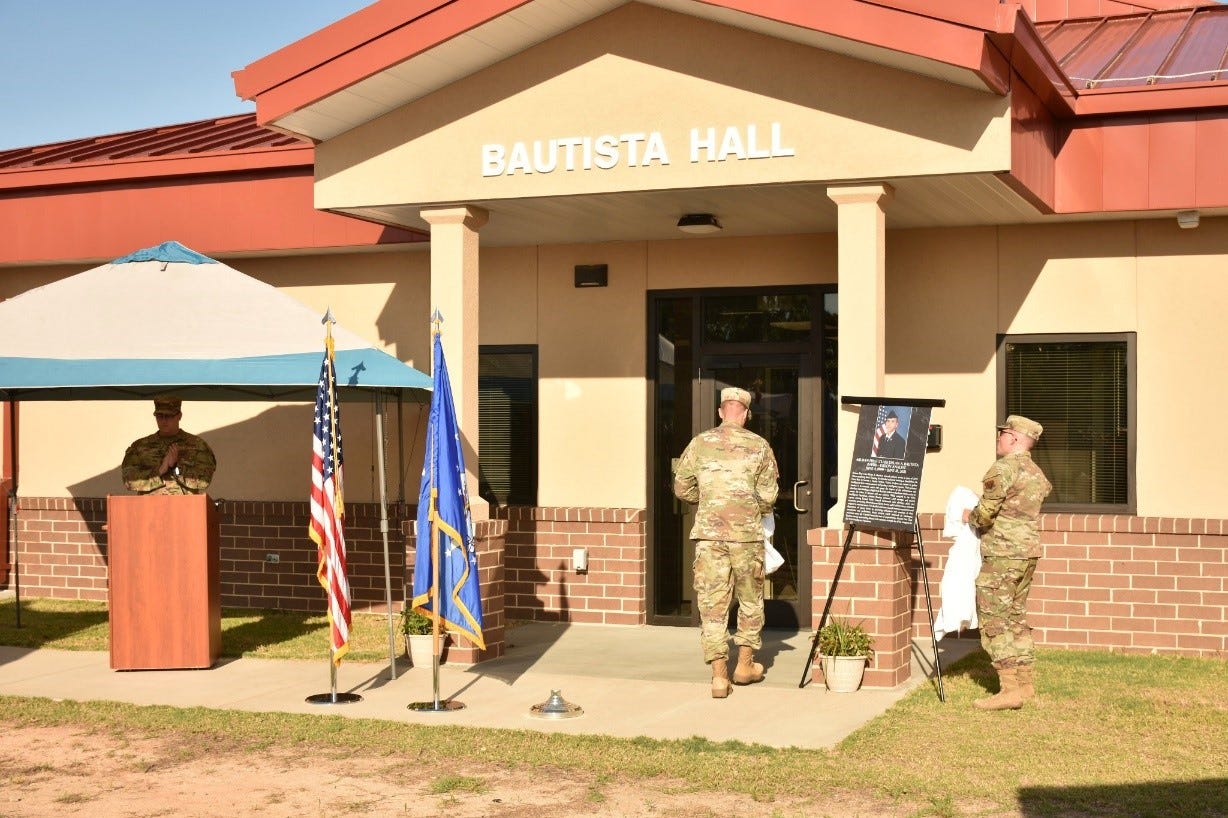
3:42 AM phone call.
Every Shirt and every commander dreads receiving this phone call. I didn’t think it would happen to me. But it did.
3:42 AM. 19 July 2021.
“Hey, First Sergeant, I’m Deputy “Smith” from the Richmond County Sheriff’s office. I’m calling to tell you I have one of your Airmen here. He was killed in a motorcycle accident this morning. I was here minutes after the accident; he was dead when I arrived. He has been taken to the morgue; he will be autopsied. Contact the Coroner in the morning, and he will give you more details.”
My mind was racing, and I didn’t have time to feel that loss. I had a job to do. Call the Squadron Commander and tell him, “Who, what, where, when, how.” He was in a school in Alabama at the time. I woke him just before 3:00 am. He had recently gone to bed as he and his classmates were celebrating their graduation. He raced across Alabama and Georgia to return to the squadron by mid-morning so that we could inform them all. In the meantime, phones rang across the CSRA (Central Savannah River Area) as the boss and I alerted key leaders up and down the chain of command ahead of notifying the Squadron. We also placed calls across the country, sending teams of Airmen to the known locations of our Airman’s family to inform them in person what had happened.
We worked on checklists, drank coffee, and received excellent support from our superiors, who were present every step of the way. At one point, we couldn’t find our Airman’s mom and had to notify her by phone. The Boss entered his office, closed the door, and made the call. At the time, he had a young child. He handled it with professionalism and grit, but I could tell he was shaken. Nobody who is in command of Airmen, Soldiers, Sailors, Marines, or Guardians wants to call family to say their loved one, the one they had entrusted to them, had died serving their country.
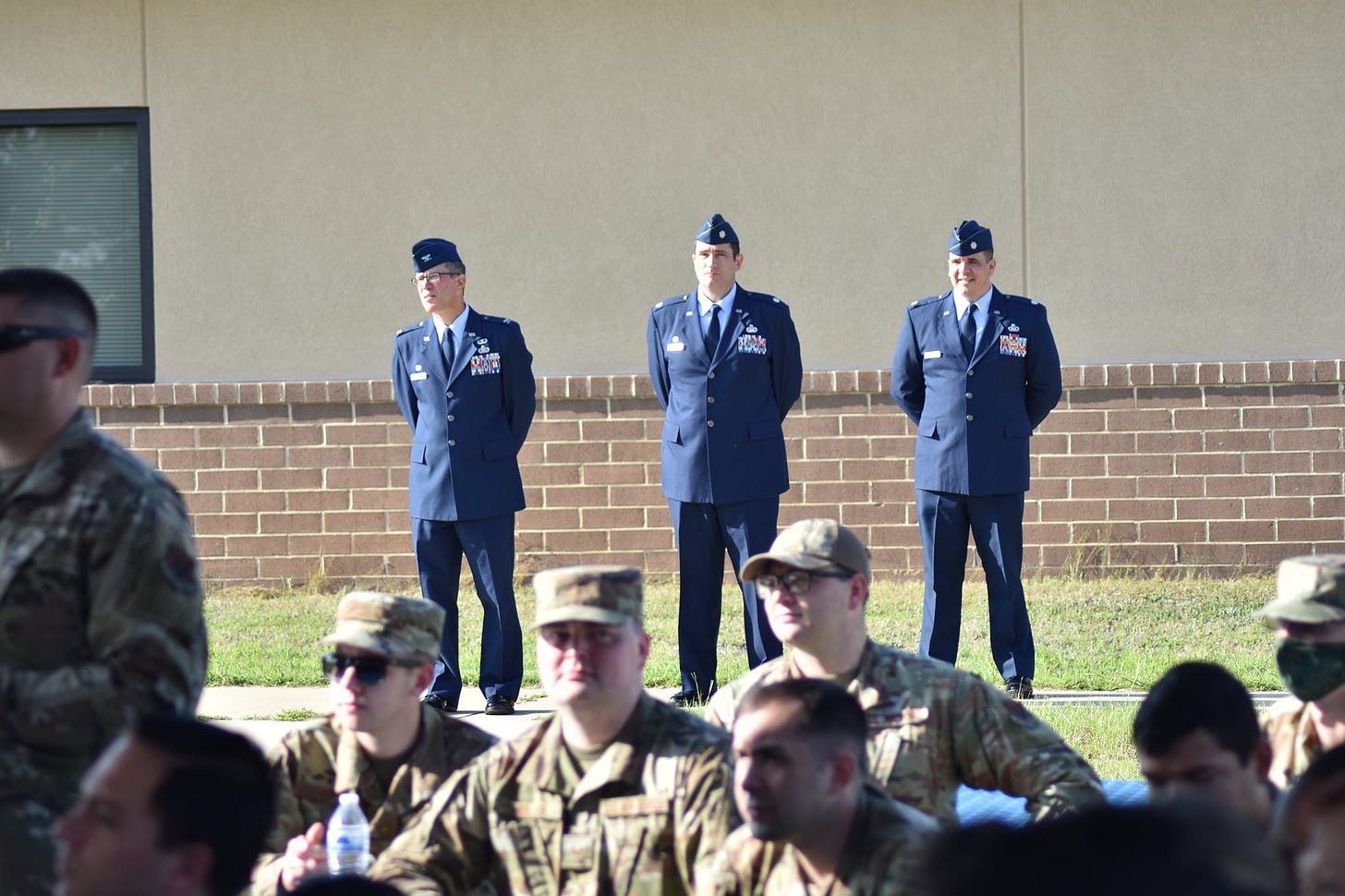
Col Selber
Fast forward a whole week, Col. Selber arrived, and the change of command took place; my pants’ elastic melted to my shirt in the Georgia sun that morning as I held the unit guidon so it could be passed from one Commander to another. I was Chuffed, as the Brits would say. It was a good day. I instantly built a solid rapport with Will. He was a good guy, eager to learn about the Squadron, his Airmen, and their Mission. Within weeks, he and I would face multiple challenges.
“A Mission Ready Force” & Afghan Collapse
We had an Airman try to beat up a Soldier a few weeks into his tenure, and I’d already had a hectic summer. A lot of those sexual assault cases mentioned above, and a few more on top, were added to our plate. Will grew to hate, “Hey, Sir, I’ve got news. Got a minute?” Work was draining, but that’s not what we were both paying attention to.
We were both watching Afghanistan. The writing was on the wall, though we were both shocked at how quickly the collapse unfolded. I remember watching it on the internet and the news over the weekend, and I knew I’d have a Boss who was not Mission-Ready. I went in early on Monday morning, August 16, to check on him. I knew immediately that he was not okay. I knocked gently and said, “Hey, Sir, got a Minute? …Are YOU OK?”
He joked about “A Full Service First Sergeant” because I came there as First Sergeant to check on him, just like I would have done with a very young Airman in distress. I recommended that he take some leave, as he needed it. I also went to his boss and informed him, also in my capacity as a First Servant (synonym for First Sergeant), that his subordinate commander would need some extra support and should be sent home because he was not “mission-ready” today.
(Confession time, I suppose: I don’t know if Will knew about my conversation with his boss. Will, I’m sorry. I’m not sorry? No, I’m not sorry. I love you; you were a wreck that day, justifiably so. I’m glad you took the time to get this right, and you’ve provided an excellent example to me on how to do the right thing, even when it’s hard and requires admitting vulnerability.)
(GCV’s comment: You did your job. That’s all any commander could ask of his SNCOs. And if any commander disagrees, then they shouldn’t be a commander)
What unfolded was even better, though probably harder for Will & Charity. He went up to DC for a few weeks, leaving the Squadron in the care of his SEL, SMSgt Palsma (solid as an oak tree, that one), the Director of Operations, a solid but newly promoted Major, and me (yikes). Will went on to do great things, like rescuing hundreds of our Afghan Allies from the Taliban. I have met a few dozen of them, and they are grand! Having some of them at your retirement was poignant and moving.
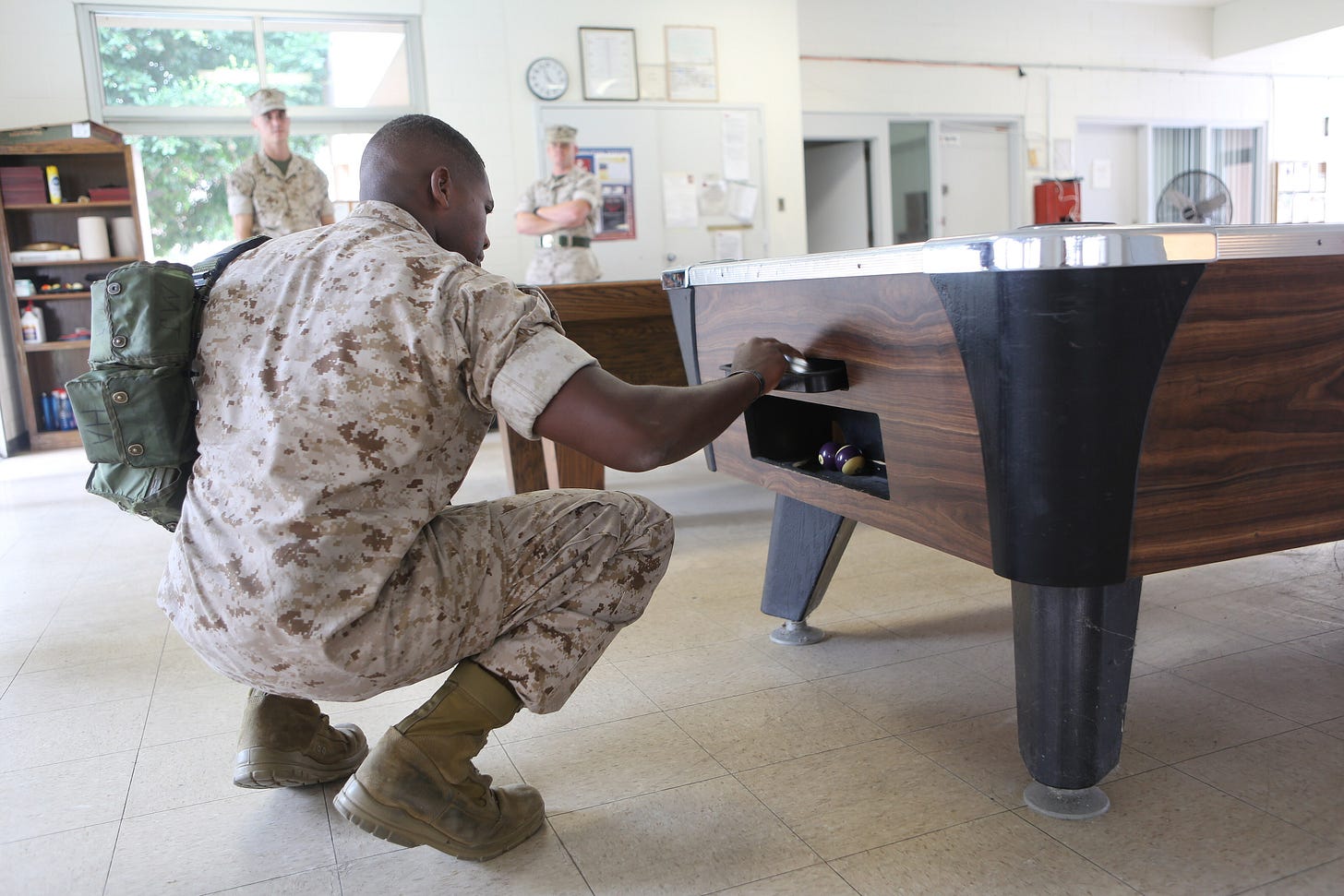
Ok, it's time for fun since you’re still here. Then inspiring.
Airman Snuffy 2, he really, really liked Marijuana. Well, Marijuana is incompatible with military service (I don’t make the rules). Every time we got close to finishing the paperwork for his discharge, he would use it again, get arrested again, and have more charges added to his discharge paperwork. Anyway, one day, this Airman thought he had found an innovative way to avoid having to come to work. He was also a devout Christian and was well-versed in the Bible. One morning, he called me and said he would not be coming to work because he had a problem, as specified in Deuteronomy 23:10, and he was unclean. I’ve read the Bible, but I must admit I wasn’t familiar with that verse.
I’ll use the New International Version:
“If one of your men is unclean because of a nocturnal emission, he is to go outside the camp and stay there.”
After reading that verse and struggling to contain my laughter, I informed the Airman that was not a justification for leaving the installation (he had been confined to the base to prevent him from finding more weed and complicating his discharge). According to the following verse, he could come to work at sundown when he was ceremonially cleansed. He didn’t like that answer, but he chose to go to work according to his regular schedule. Pesky First Sergeants, always holding Airmen to standards.
Building Dedication:
After losing our Airman, I broached the idea with Will. We had recently moved into a new building, and I thought we could dedicate it to Airman Bautista, our fallen airman, once it was finally ready. Will agreed, and I immediately started slogging through the Army’s paperwork process. It took several months and was complicated by the COVID-19 pandemic. It was finally approved, and the signs were ordered weeks before the first anniversary of A1C Bautista’s passing. We held a memorial Ceremony and building dedication to mark the anniversary. We invited his family to come out again, and I am thankful they came. I get choked up thinking about that building, but I will say that it’s one of the things that makes me most proud in my 18-year career. Honoring that young man is an honor for me; it helps heal the wound his passing left on the squadron.



